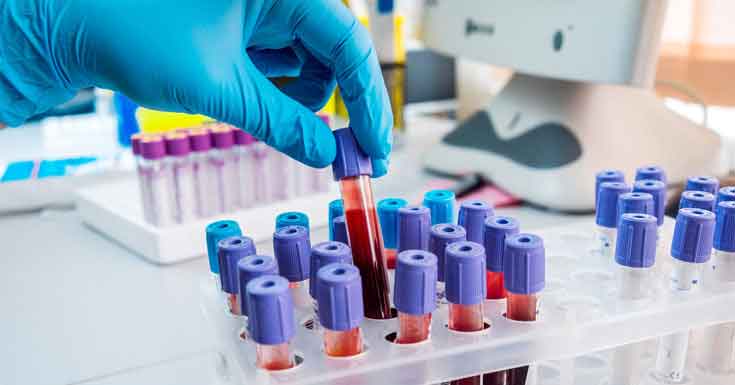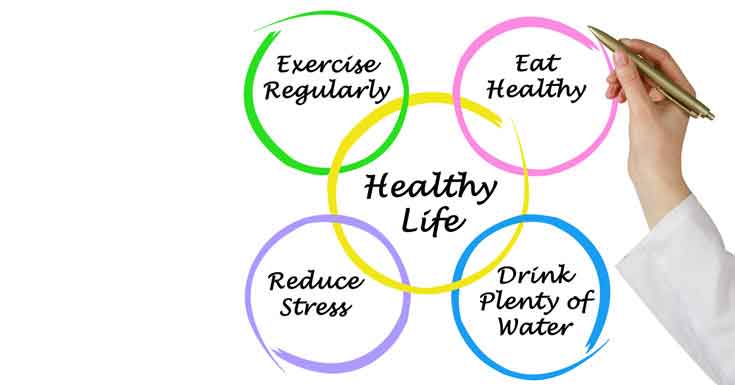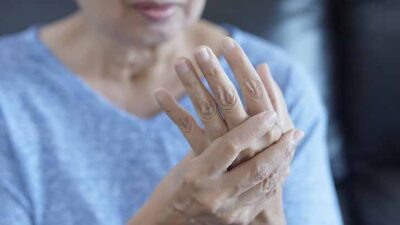What is Arthritis?
According to The US National Library of Medicine1, you could be suffering from arthritis if you’re having trouble moving around or feeling pain and stiffness in your body. In most of the cases, arthritis could cause swelling and pain in joints.
Causes of Arthritis
Arthritis has many forms and therefore the causes are also several of them. Most of the forms of arthritis are caused by several factors acting together. Genetic makeup could make you develop certain disorders which could in turn pre-dispose you to arthritis.
Different external factors could also increase your risk to developing a certain form of arthritis. Previous injuries, smoking, infection and some physically demanding occupations are some of the common environmental factors that can increase the risk to arthritis.
For other arthritic conditions, chance could be the risk factor to developing them.
Signs and Symptoms of Arthritis Joint Pain
Joints are the most affected parts of the body by arthritis. Joint stiffness and pain mostly in the morning are the typical symptoms of arthritis as well as swelling in the joints. In some cases, arthritis may cause a decrease in range of motion and redness of the skin around affected joints.
For rheumatoid arthritis, sufferers may feel so tired or loss of appetite due to inflammation as a result of the body’s immune system eating its own fresh. Anemia and a slight fever may also be as a result of rheumatoid arthritis. Severe cases of rheumatoid arthritis may cause disability if left untreated.
Types of Arthritis
1. Osteoarthritis
Osteoarthritis is a form of arthritis caused as a result of the cartilage losing its elasticity. When the cartilage becomes stiff it might get damaged so easily.
As a shock observer, the cartilage starts to wear away gradually causing the tendons and ligaments to get stretched, leading to pain.
2. Rheumatoid Arthritis
This is a form of arthritis caused by inflammation in the body. In this case, the synovial membrane gets attacked, leading to pain and swelling. Should it left untreated, this form of arthritis can lead to deformity.
3. Gout
Gout is a form of arthritis caused by accumulation of urate crystals within the joints. Urate crystals are formed as a result of unusual breakdown of a normal substance of the body.
Due to accumulation of urate particles in the joints, a form of arthritis known as gout is formed. The toe and knees are the most affected body joints.
4. Systemic Lupus Erythematous (SLE or Lupus)

This is a type of arthritis that is as a result of the manifestation of systemic lupus erythematosus. Like rheumatoid arthritis, this form of arthritis is also an auto-immune condition in which the immune system of the body causes damage to the body itself. Hands, wrists and knees are the main joints affected.
5. Psoriatic Arthritis
Psoriatic arthritis is responsible for causing pain and inflammation in and around body joints. In most cases, this form of arthritis affects people who’re affected by psoriasis.
Psoriasis is a condition that affects people of any age. It causes the skin to develop a reddish and scaly rash.
6. Infectious Arthritis (Septic Arthritic)
This form of arthritis is caused when Infections within a joint start causing inflammation. In some instances, infectious arthritis is referred as septic and bacterial arthritis. Treatment depends on the causative agent but mostly surgery is required to fix the joint infection.
7. Juvenile Rheumatoid Arthritis (JRA)/ Childhood Arthritis
Juvenile rheumatoid arthritis is a form of arthritis that mainly affects a person aged 16 or less. There three main types:
- Pauciarticular JRA: This is the most common and mildest form of JRA and The child experiences pain in up to 4 joints.
- Polyarticular JRA: It affectsmore joints and is more severe and gets worse as time goes by.
- Systemic JRA: This is the least common and here Pain is experienced in many joints and can also spread to organs.
8. Fibromyalgia
This is a type of arthritis that leads to widespread pain in the muscles, although it causes many other symptoms. People with this condition describe their condition as being flu like and doesn’t go away. Leaves people so exhausted and unable to think the right way.

9. General
General Arthritis simply refers to a condition leading to inflammation of a joint, and this applies to over 100 diseases with similar symptoms.
Most of these conditions fall into one of two categories:
- Degenerative arthritis, like osteoarthritis
- Inflammatory arthritis, like rheumatoid arthritis
Some of the common Symptoms of most types of arthritis include stiffness, pain and swelling in the joint.
Also Read – Information About Arthritis
How Will It Affect Me?
Arthritis does affect people in many different ways. For how long the patient is affected and how severe the condition becomes it depends on the type of arthritis.
Arthritis has good and bad days. Most patients suffer from discomfort, stiffness, pain and/or fatigue.
Arthritis may also lead to frustrations as you may discover that you are no longer able to handle things the way you used to.
Though, arthritis does not mean giving up having an active lifestyle. With lifestyle changes, there is no reason why you can’t continue being active.
What are the Risk Factors?
Each type of arthritis has its own unique risk factors, and some of these risk factors cannot be changed i.e., non-modifiable risk factors; while others we can control such as modifiable risk factors.
Most common risk factors for the development of arthritis include:
Non-Modifiable Risk Factors
Age: though Arthritis can develop at any age, the risk of developing most types of arthritis increases as one age.
Sex: Women are most likely to be affected by most types of arthritis than men. About 64% of all people with arthritis are women. Goutand Ankylosing spondylitis (AS) are more common in men.
Hormones: A possibility of a hormonal link could be responsible for rheumatoid arthritis (RA) and systemic lupus erythematosus (SLE). These diseases mostly occur around menopause and pregnancy (particularly in RA).
Genetic-predisposition: There are Specific genes that are associated with higher risks of certain types of arthritis, i.e., RA and AS. Some Specific genes influence the severity of RA.

Modifiable Risk Factors
Physical inactivity: Being inactive physically is associated with increased severity and progression of most types of arthritis.
Diet: Good diet plays an important role in maintenance of healthy weight, which is a key factor in the reduction or prevention of disease progression.
Overweight and Obesity: Being overweight can contribute to both the progression and onset of hip, knee and hand osteoarthritis (OA) as well as other types of arthritis.
Joint Injuries: Injury to a joint can contribute to the development of OA in that joint.
Smoking: Excessive smoking is linked to the progression and severity of both RA and SLE.
Occupation: Types of occupations involving repetitive bending of knee and squatting are linked with OA of the knee and hip.
Infection: Some infections in the body are possible initiator for inflammatory types of arthritis, mainly RA
Possible Complications
- Difficulties in performing daily tasks
- Deformation
- Surgery
- Difficulty in walking or seating straight
Diagnosis
In order to rule out other possible causes, your doctor might suggest tests to confirm the diagnosis. Tests may include:

- Blood tests
- X-rays
- A magnetic resonance imaging (MRI) scan
- Acomputerized tomography (CT) scan
- An ultrasound scan
- Synovial fluid analysis
- A biopsy
- A urine test
Treatments For Arthritis
1. Lifestyle Changes : Eating well, exercises, reducing stress
2. Weight Loss: Extra weight puts more pressure on your joints. By reducing pressure on your joints by reducing weight, your condition will improve and your mobility, pain levels will all decrease. This will also prevent the possibility of future damage to your joints.
3. Exercise: Exercises do offer many benefits to the body other just weight loss. Regular exercises help to maintain flexibility in your joints.
However, Weight-bearing exercises like walking and running can be damaging. Instead, try to do low-impact exercises like water aerobics or swimming so to flex your joints without adding further stress.
4. Therapy: Simple cold and hot treatments can make a huge difference when it comes to arthritis pain. Very Long, warm baths-mainly in the morning will help ease stiffness in your joints. Use a heating pad at night to keep your joints loose. Cold therapies are best for relieving joint pain.
5. Surgery. To fix a joint that cannot be eased by other methods
6. Medications: Medication for arthritis depends on the severity of the condition. For moderate pain with swelling, prescription nonsteroidal and anti-inflammatory drugs (NSAID) such as ibuprofen, aspirin, or naproxen sodium can provide relief. For severe and worse cases, surgery could be the only option. However, recent studies have shown that Jointxl Plus, a dietary supplement formulation could be what you all need for all your arthritis problems. You might visit to check the benefits of Turmeric Plus Review; which is the best-known formula to treat the joint pain.
What Are The Prevention For Arthritis?
Sometimes you can’t prevent arthritis. Some of its causes such as family history, age, and gender are out of your control. However, there are a few health habits you can change to minimize your risk of developing painful joints.
Many of these steps include exercising and eating a healthy diet; this will prevent other diseases too.

Eat Fish
Some fish types are rich in omega-3 fatty acids. These acids are having a number of health benefits including reducing inflammation in the body.
Control Your Weight
Being overweight or obese can take a real toll on your knees in supporting your body weight.
Exercise
Exercises not only take stress of excess weight off your joints but they also strengthen the muscles around the joints, which protects them from wear and tear.
Also Read – Is It Safe To Use Medicinal Marijuana For Arthritis?
Avoid Injury
Injuring your joints; for instance when playing sports or during accidents can lead to damage of joint cartilage in the joints causing rapid wear.
See Your Doctor
See a doctor or rheumatologist if you start developing arthritis.
Conclusion
Arthritis can be a very dangerous disease if left unattended to for a long time. Millions and millions of people in the world, especially in the United States are left disabled by this condition due to poor management and treatment.
Endeavor to see a rheumatologist or physician as earlier as possible once you start noticing some changes to your joints.
Feature Image Credit: shutterstock.com
Post in Image Credit: shutterstock.com







 This article changed my life!
This article changed my life! This article was informative.
This article was informative. I have a medical question.
I have a medical question.
 This article contains incorrect information.
This article contains incorrect information. This article doesn’t have the information I’m looking for.
This article doesn’t have the information I’m looking for.